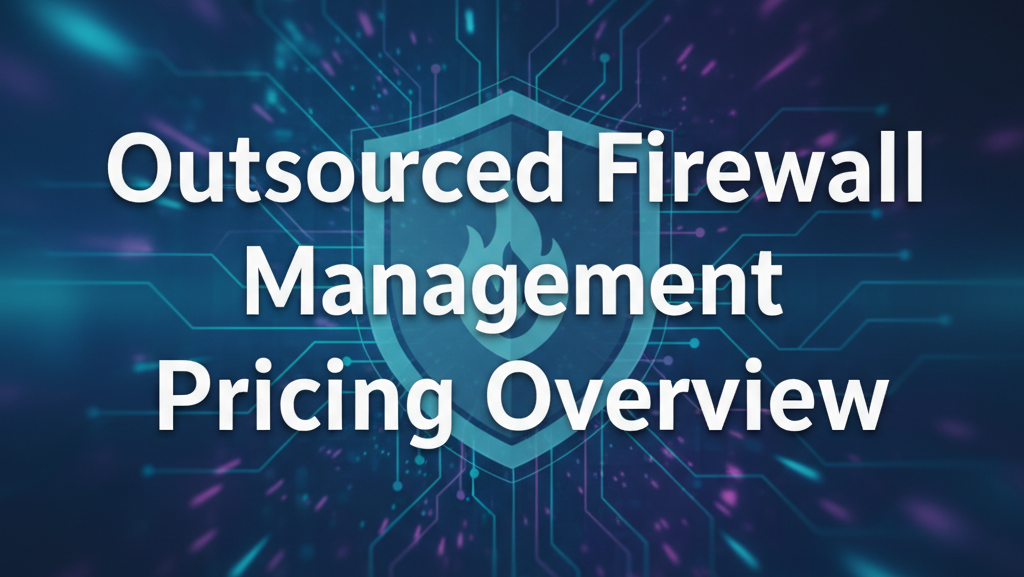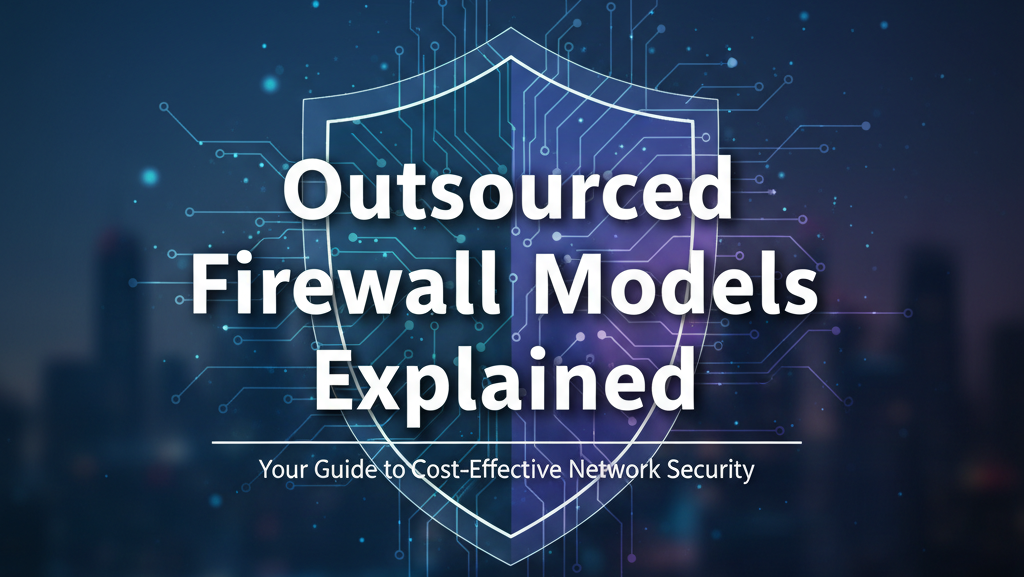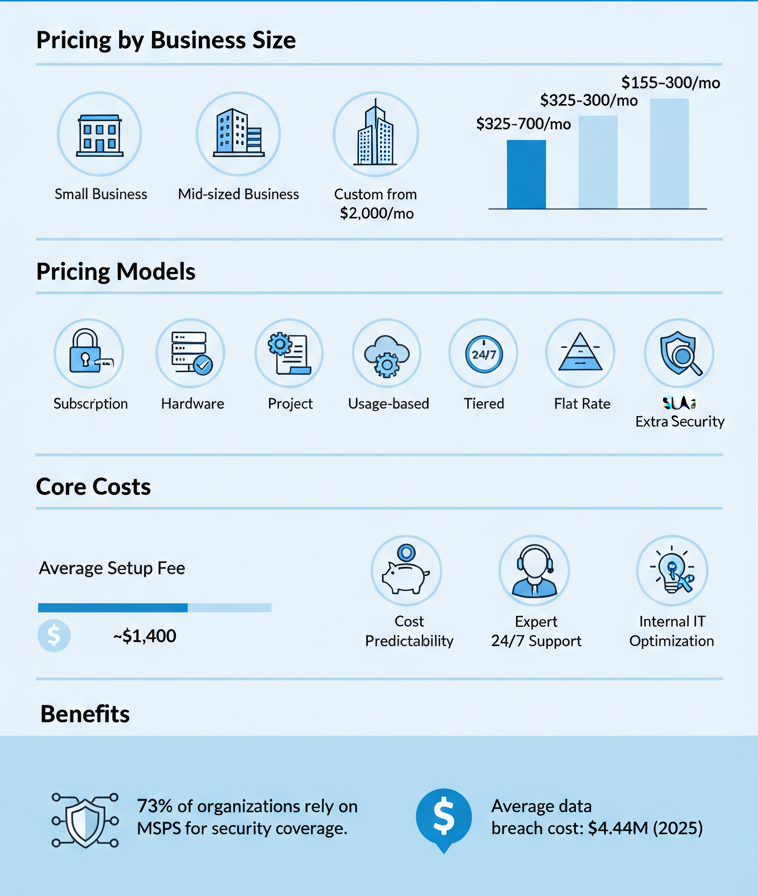Address
304 North Cardinal St.
Dorchester Center, MA 02124
Work Hours
Monday to Friday: 7AM - 7PM
Weekend: 10AM - 5PM
Address
304 North Cardinal St.
Dorchester Center, MA 02124
Work Hours
Monday to Friday: 7AM - 7PM
Weekend: 10AM - 5PM
Nobody likes throwing money at security without knowing why. The cost of letting someone else handle your firewall isn’t simple math, it depends on how big you are and what you’re protecting.
Small shops might pay a few hundred bucks monthly, while bigger companies shell out thousands. It’s all about the gear you need and how much babysitting it takes. Some places need 24/7 monitoring, others just want basic protection.
Best bet? Figure out what you’re actually protecting first, then work backwards from there. The right setup doesn’t have to break the bank.

Firewall costs hit different depending on how big your operation is. Small businesses get the simpler end of the deal, usually paying between 150 to 300 monthly. That covers the basics, updates, licenses, someone watching the system, and help when things go wrong. With 73% of organizations now relying on MSPs for around-the-clock security coverage, even small shops increasingly expect 24/7 oversight. [1]
Many companies pair this with managed firewall services to get a consistent layer of protection without the need to hire full-time security specialists. Since they’re running lighter hardware, they don’t get hit with huge upfront costs.
Mid-sized companies pay more, somewhere between 325 to 700 monthly. Makes sense, more stuff to protect means more devices to watch. They need beefier hardware too, which isn’t cheap.
The big players? They’re looking at custom pricing that starts around $2,000 monthly. Their needs get complicated fast:
Nobody likes surprises in their security bills. The meat of these costs comes from hardware (those fancy firewalls don’t come cheap), software licenses that keep everything updated, and service agreements that spell out exactly what you’re getting. Most providers throw in 24/7 monitoring by their security folks, it costs more, sure, but beats finding out about a breach after the fact.
Some companies tack on extras like threat intelligence or security operations support. These often work alongside managed SIEM services, giving businesses deeper visibility into threats and compliance reporting. Nice to have, but they’ll bump up that monthly bill.

Most places go for subscriptions these days, and it’s pretty straightforward, you pay the same amount every month or year. There’s something nice about knowing exactly what’s coming out of your pocket for keeping those firewalls running. The monthly bill covers updates, someone watching your back, and help when things go sideways.
Just watch the fine print though. Some subscriptions only handle the bare minimum firewall stuff, while others throw in the whole security package. Worth asking what’s actually included before signing anything.
Sometimes you just need someone to set things up and walk away. That’s where one-time fees come in handy. Maybe you’re installing new firewalls or need someone to check if you’re following all the rules. Each job gets its own price tag based on how complicated it is.
Pay for what you use, sounds fair, right? The bill changes based on how much data you’re pushing through or how many people and devices you’re protecting. Works great if your traffic goes up and down a lot, but tracking all that usage can be a real headache.
Think of tiers like cable TV packages, basic channels cost less than the premium stuff. Same deal here. Basic firewall watching costs less than round-the-clock monitoring with all the fancy threat detection bells and whistles. Some places just charge one price for everything, which keeps things simple but might mean you’re paying for stuff you don’t need.

We’ve noticed that as companies grow, their firewall management needs become more complex. Larger networks mean more endpoints, more traffic, and often stricter compliance requirements.
This complexity drives costs up. Advanced features, such as intrusion prevention or multi-region firewalls, add layers of expense.
Hardware performance matters. Higher throughput firewalls with advanced capabilities cost more upfront and require corresponding maintenance fees.
Licensing fees for firewall software updates and security patches also factor into ongoing costs. Some licensing models renew annually, others monthly, influencing budgeting.
Considering that the average global cost of a data breach in 2025 is $4.44 million, the return on investment for strong preventive measures (like robust firewall management) becomes quite clear. [2]
SLA guarantees affect pricing. Faster response times, higher availability commitments, and dedicated support increase fees.
We’ve worked with clients where a 24/7 support SLA was non-negotiable, and that premium reflected in the pricing.
Bundling firewall management with SOC services or compliance support creates a more comprehensive but costlier package.
Customization to meet industry regulations or internal policies adds fees but often proves necessary for risk mitigation.
Credits: Deloitte US
One big advantage we’ve seen is budget predictability. Outsourcing firewall management typically means fixed or clearly tiered fees, avoiding the surprises that can hit internal teams juggling hardware upgrades and staffing.
Pricing often scales with business growth, so you pay for what you use. This flexibility helps with long-term planning.
Outsourced services provide access to certified security professionals who monitor networks around the clock. Their expertise in threat models and risk analysis tools is hard to replicate in-house without heavy investment, and this is where understanding the full MSSP value proposition becomes critical for maximizing ROI.
24/7 incident response capability is a critical benefit, often bundled into pricing but worth noting separately.
By outsourcing firewall management, internal IT staff are freed to focus on strategic projects rather than day-to-day firewall upkeep. This reduces management overhead and complexity.
We’ve seen companies reallocate resources effectively once firewall monitoring is handled externally.
Setup fees are common and can range around $1,400 on average. Installation, initial configuration, and integration require upfront investment but lay the foundation for smooth ongoing management.
Initial costs impact the total pricing picture and should be factored into budgeting.
Outsourced firewall management pricing depends on business size, security needs, and required customization. Hardware performance and licensing fees set your base costs, while SLA terms ensure uptime without overpaying. Adding 24/7 monitoring or incident response raises costs but reduces risk. Subscription plans work well for small to mid-sized businesses, while enterprises may need custom models.
Get expert guidance here to optimize your security stack and align costs with your risk management goals.